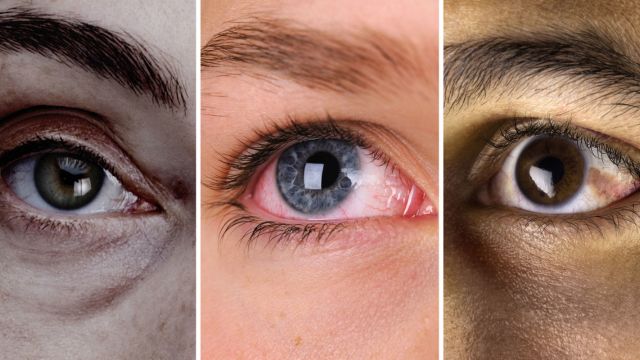Your eyes are more than just a window to the world; they are also mirrors of your overall health. Subtle changes in your eyes can reveal underlying health conditions that might otherwise go unnoticed. Paying attention to these signs could help you identify potential health issues early, offering a chance for timely intervention.
Here are nine health clues your eyes might be sending:
1. Persistent Dryness or Redness: Could Indicate Autoimmune Disorders or Allergies
- What It Could Mean:
- Dryness: This may suggest Sjogren’s syndrome, an autoimmune disorder affecting moisture-producing glands.
- Redness: Often linked to chronic allergies, eye strain, or inflammation from arthritis.
- What to Do:
- Use artificial tears or allergy medication.
- Consult a doctor if symptoms persist, especially with joint pain or fatigue.
2. Yellowing of the Whites: A Warning of Liver Problems
- What It Could Mean:
- Yellowing, known as jaundice, could signal liver issues like hepatitis or cirrhosis.
- What to Do:
- Seek immediate medical attention, particularly if accompanied by dark urine or abdominal pain.
3. Puffy or Swollen Eyelids: Possible Kidney or Thyroid Issues
- What It Could Mean:
- Kidney Problems: Swelling may indicate fluid retention due to kidney dysfunction.
- Thyroid Issues: Graves’ disease can cause swelling and bulging eyes.
- What to Do:
- Reduce salt intake and watch for fatigue or weight changes.
- Visit a doctor for blood tests.
4. Blurred Vision or Difficulty Focusing: A Sign of Diabetes
- What It Could Mean:
- High blood sugar can lead to diabetic retinopathy, damaging the retina.
- What to Do:
- Get a blood sugar test and eye exam.
- Manage blood sugar levels through lifestyle changes and medication if needed.
5. Bloodshot Eyes: High Blood Pressure Red Flag
- What It Could Mean:
- Hypertension can rupture blood vessels, causing redness.
- What to Do:
- Monitor blood pressure and consult a doctor if redness persists.
6. Sudden Vision Loss or Floaters: Retinal Detachment or Stroke
- What It Could Mean:
- Retinal detachment or a stroke affecting the optic nerve can cause vision changes.
- What to Do:
- Seek emergency medical care immediately.
7. White or Grey Ring Around the Cornea: High Cholesterol Alert
- What It Could Mean:
- Arcus senilis could point to elevated cholesterol or triglycerides in younger individuals.
- What to Do:
- Check cholesterol levels with a lipid panel.
- Adopt a heart-healthy diet.
8. Eye Twitching or Spasms: Stress or Magnesium Deficiency
- What It Could Mean:
- Common triggers include stress, fatigue, or magnesium deficiency.
- What to Do:
- Manage stress, reduce caffeine, and include magnesium-rich foods like spinach and bananas in your diet.
9. Pale Inner Eyelids: Anemia Indicator
- What It Could Mean:
- Iron deficiency anemia can cause fatigue, weakness, and cold extremities.
- What to Do:
- Eat iron-rich foods like red meat and lentils.
- Consider iron supplements after consulting a healthcare provider.
When to Consult a Doctor
While some eye changes are temporary, others signal more serious health concerns. Visit a healthcare provider if you experience:
- Persistent or worsening symptoms.
- Sudden vision changes.
- Eye pain or unusual pressure.
By paying attention to changes in your eyes and seeking timely medical advice, you can safeguard your health—and perhaps save your life. Your eyes are truly windows not only to the world but also to your well-being.



